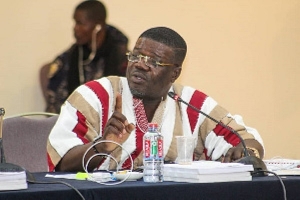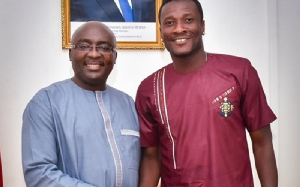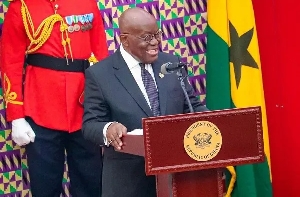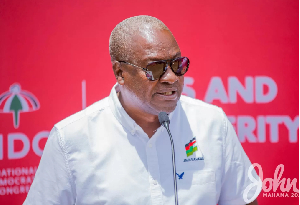


Ishmael Mensah Blog of Tuesday, 31 December 2024
Source: Ishmael Mensah
Klutse Kudomor calls on the vice president-elect to spearhead the battle against rural poverty and teen pregnancies.
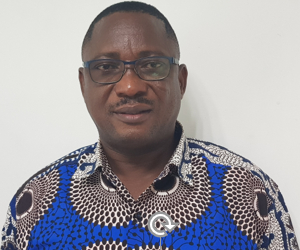
Agribusiness consultant Klutse Kudomor, who has a wealth of experience in women's empowerment and rural development, has urged Ghana's first female vice president-elect to support the battle against rural poverty and teen pregnancy.
"The historic election of a woman to such a high office presents an unparalleled opportunity to address the root causes of social challenges affecting women and girls in Ghana," said Kudomor, a longtime supporter of women in leadership.
Speaking impassionedly at a community engagement, Kudomor made links between adolescent pregnancy, poverty, and rural women's lack of economic prospects.
He claimed that teen pregnancy is a poverty issue as much as a moral one. "Young girls suffer from their circumstances because they lack basic necessities like food and financial security, particularly in rural communities."
Breaking the Poverty Cycle Through Women’s Economic Empowerment:
Creating jobs for women might be a game-changer, according to Kudomor, who has led projects including the Ghana Agricultural Sector Investment Programme (GASIP) and worked with Nestlé Central and West Africa.
Kudomor said, "Women are empowered to make better decisions for their lives when they have jobs and financial independence." "We need policies that address the systemic barriers that keep women in poverty, not just handouts." He called on the vice president-elect to spearhead ambitious projects that put women's economic empowerment first, especially in agribusiness, where there are many chances to generate steady revenue.
A National Emergency: Teenage Pregnancy Linked to Poverty:
The situation of adolescent pregnancies in rural Ghana was depicted by Kudomor as a dire matter that necessitated a multifaceted strategy. "Young girls are frequently compelled to make desperate decisions when families are unable to support their children, exposing them to exploitation and early motherhood," he said.
He called on the government to improve family planning systems and increase access to reproductive health care in addition to concentrating on economic solutions. "Why should we expect teenagers to make better decisions without resources and guidance when even adults are tempted by circumstances?" Kudomor inquired.
Strengthening Healthcare and Education Systems:
Kudomor emphasized the need for changes while applauding previous attempts to construct Community-based Health Planning and Services (CHPS) complexes. "To function as educational centers for family planning and reproductive health, these facilities need to be reinforced and supported," he stated.
Kudomor promoted community-level education initiatives in addition to healthcare to educate women and girls about their rights and obligations. "Education is essential for ending cycles of dependency and poverty. He underlined that girls need to be given the skills they need to withstand temptations that could ruin their futures.
Women in Leadership: A Beacon of Hope
As a significant step toward gender parity in leadership, Kudomor hailed the election of Ghana's first female vice president. He pointed out that her historic position offers a chance to encourage women nationwide to assume leadership positions and support laws that put their welfare first.
This is a call to action, not only a symbolic moment. Kudomor said, "Her Excellency must use her office to champion women's empowerment, from job creation to access to reproductive health."
A Vision for Rural Transformation
Kudomor presented a vision for rural transformation fueled by women's empowerment, drawing on his extensive background in agricultural and rural development. He emphasized how agribusiness may increase food security in underserved areas and give women long-term employment.
"I have worked with women in agriculture for many years, and I have witnessed firsthand how empowering them can improve entire communities," he stated. "This type of leadership is what we need right now—leadership that puts an emphasis on workable answers to actual issues."
A Call for Collective Action
Kudomor appeals to development partners, civil society organizations, and policymakers in addition to the vice president-elect. He underlined that tackling poverty and adolescent pregnancy calls for coordinated efforts and ongoing support for women and girls.
"This is a national issue, not simply a government one. "Everyone can contribute to building a better future for our daughters," he said in closing.
Conclusion: A Bold New Era for Women in Ghana
Kudomor's strong call to action highlights the pressing need for policies that empower women and address the underlying causes of adolescent pregnancy and rural poverty as Ghana welcomes its first female vice president and ushers in a new era of leadership. His ideas of robust education systems, improved healthcare, and economic empowerment provide a workable road map for attaining sustainable development and gender parity.
Now, the question is whether Ghana will take advantage of this momentous chance to change the lives of women and girls and open the door to a more promising and inclusive future.






